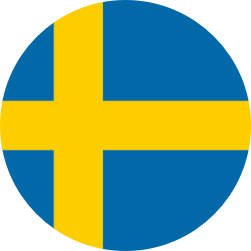What does the Customer Due Diligence mean?
As a financial services provider, you have to investigate the identity of your customers and partners and what the risk of money laundering and terrorist financing is with your customers and partners. The intensity of the Customer Due Diligence and exactly what the research looks like depends on a number of factors, which are:
- Type of customer
- Business relationship
- The product or transaction
- The degree of risk sensitivity to money laundering or terrorist financing
The Customer Due Diligence applies to anyone dealing with one or more money flows or anyone buying or selling expensive goods. If your organisation provides financial services, you are obliged to investigate the identity of the customer and where their money comes from. In addition, it is mandatory to report unusual or unexplained transactions to the Financial Intelligence Unit – The Netherlands.
Checked sources
To estimate the chances of money laundering and terrorist financing, the organisation needs to look at whether someone or an organisation appears in any of the following sources:
Any organisation or individuals involved in terrorist activities, anti-corruption, fraud, wanted persons, etc. are on the sanctions list. These individuals and organisations that are on the list cannot use their own bank accounts or credit cards. In this way, it becomes more difficult for them to be involved in terrorist acts or commit them themselves.
PEP means a Politically Prominent Person and this is someone with a politically prominent position or who held such a position until at least one year ago. Organisations are required to check their business contacts if they are on the PEP list, as anyone on this list is an easier target for fraud, corruption or money laundering.
Every year, the European Commission identifies certain countries with a higher risk of money laundering or terrorist financing. This list was updated on 24 February 2023. The higher-risk countries are: Afghanistan, Barbados, Burkina Faso, Cambodia, Democratic Republic of Congo, Gibraltar, North Korea, Philippines, Haiti, Iran, Jamaica, Yemen, Jordan, Cayman Islands, Mali, Morocco, Mozambique, Myanmar, Panama, Senegal, Syria, Tanzania, Trinidad, Tobago, Uganda, Vanuatu, United Arab Emirates and South Sudan.
The Central Insolvency Register (CIR) is a register that publicly shows whether a person has ever faced bankruptcy, suspension of payments or debt restructuring. In the CIR, you can find details of these cases kept by various courts. This way, your organisation can find out whether your business relation is, or has been, in a legal debt restructuring process.
Adverse media involves screening a person or organisation for negative news statements. These negative news items may be related to fraud or corruption. It looks at whether the person or organisation appears on a list of convicted persons and organisations. This list is maintained and added to by a team of investigators who daily investigate publications from financial and regulatory authorities and disciplinary authorities worldwide, as well as anti-corruption agencies such as Interpol, Europol and the Federal Bureau of Investigation (FBI). Incidentally, the adverse media check is not mandatory under the customer due diligence.
By employing a disqualified director or having a client who is a disqualified director, you put your organisation in a high-risk position. The legal term is civil governance. This means that there is legal option to impose a board ban on directors who commit bankruptcy fraud or are guilty of mismanagement in the run-up to bankruptcy. Once this ban is imposed, that person is temporarily barred from managing legal entities.
The Dutch Central Bank (DNB) and the Financial Markets Authority (AFM) are the two financial regulators in the Netherlands. The Dutch Central Bank supervises an organisation’s financial structure and the competence and integrity of its directors. The AFM supervises how financial institutions deal with customers, such as whether they provide consumers with misleading information.
Employment screening with Validata
Besides the fact that it is very important to conduct the Customer Due Diligence process correctly, there are more points to consider in the financial sector. Employment screening also ensures integrity. It is important to check other things as well, for example their working experience. Make sure who you are hiring with Validata.

Expert in employment screening in the financial sector
Working with various data suppliers, Validata can move quickly and deliver the right information that will give your organisation greater insight into your candidates.

Fast and efficient implementation
Thanks to our years of experience, we offer a fast and efficient screening process that complies with current (privacy) laws and regulations. Our processes have short lead times of 5 working days on average and organisations can request a screening 24/7.

Secure and reliable
Validata has been a specialist in employment screening since 2009 and is 100% compliant with the GDPR. Because Validata has a network of partners, the information is checked directly at the source. This allows Validata to only deliver reliable information.
Contact us
"*" indicates required fields
Contact us
"*" indicates required fields
Contact us
"*" indicates required fields
Contact us
Contact us
Download the white paper
Download the white paper
Download the white paper
Download the white paper
"*" indicates required fields
"*" indicates required fields
"*" indicates required fields






